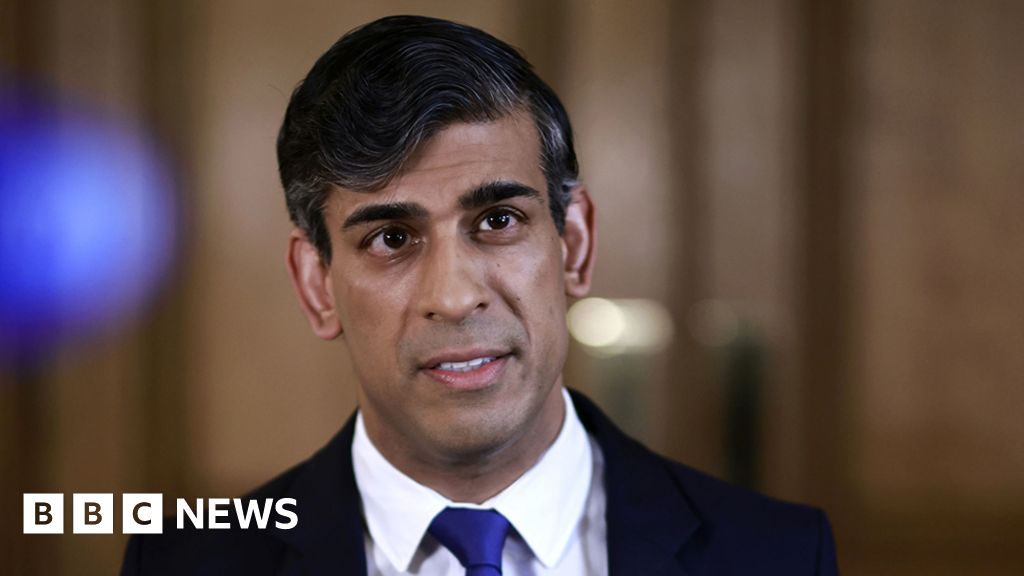You are using an out of date browser. It may not display this or other websites correctly.
You should upgrade or use an alternative browser.
You should upgrade or use an alternative browser.
UK Incremental Smoking Ban (Tobacco & Vapes Bill) Starts Journey Into Law
- Thread starter Toby iVapour
- Start date
vapesmarter
Mod Maker
- Joined
- Jun 12, 2016
- Messages
- 7,003
it seems odd but all the knobheads that people that we have seen in the past the failed leaders the mps with big gobs and bigger egos voted against the bill the little people the robots the arse lickers voted for it
Rickster
Legend
- Joined
- Oct 31, 2014
- Messages
- 10,427
it seems odd but all the knobheads that people that we have seen in the past the failed leaders the mps with big gobs and bigger egos voted against the bill the little people the robots the arse lickers voted for it
Follow the money...always
John R Phillips
Postman
- Joined
- Oct 2, 2022
- Messages
- 762
Yep, unenforceable.
It always has, and likely always will be, unenforceable.
Smokers, and vapers, have never waited until their 18th (or 19th, or 20th…) birthday to start - almost without exception they started in their early/mid teens.
Interesting to see that despite the apparent landslide support, nearly half of the conservative PMs failed to support the bill - either by voting against it or abstaining.
It always has, and likely always will be, unenforceable.
Smokers, and vapers, have never waited until their 18th (or 19th, or 20th…) birthday to start - almost without exception they started in their early/mid teens.
Interesting to see that despite the apparent landslide support, nearly half of the conservative PMs failed to support the bill - either by voting against it or abstaining.
andipandi
Legend
- Joined
- May 29, 2015
- Messages
- 21,047
This new bill could wipe out smoking – the only losers would be those who profit from it Chris Whitty:
Addiction to smoking traps then slowly disables and kills thousands of our fellow citizens, especially the most vulnerable. The great majority of smokers wish they had never started, but their choice was taken away at a young age by marketing that deliberately promoted addiction to nicotine.
About 80,000 people a year die in the UK as a result and many more are harmed. The burden of smoking-related diseases is very heavily weighted towards people living in areas of deprivation, with about one-third of smokers in England living in the most deprived two deciles. Smoking is one of the most important modifiable drivers of the substantial inequalities in health we see across the country.
If the tobacco and vapes bill, which gets its second reading in parliament today, is passed it will have a major effect on preventing disease. No child or young person turning 15 from this year on will ever legally be sold a cigarette or other forms of tobacco, leading over time to a smoke-free generation. Stopping smoking is backed by the overwhelming majority of doctors, nurses and health charities, who see the effects of the habit on vulnerable people. It is also backed by a substantial majority of the public according to polling, and by the governments of all four UK nations. In addition, the bill will substantially reduce the ability of vape companies to market to children, an utterly unacceptable practice.
Some of the effects of a smoke-free generation will take decades to fully have an effect, but many will be rapid. About 70% of lung cancer cases, the UK’s largest cause of cancer deaths, are caused by tobacco, along with premature smoking-related strokes, heart disease and dementia. These major diseases do not usually come on before late middle age, so the effects of a smoke-free generation will not be felt for more than three decades – but will then be substantial. Some benefits will be immediate, like reducing asthma attacks in children exposed to secondhand smoke.
Some of the earliest effects of a smoke-free generation will be on smoking in pregnancy. All mothers want the best for their newborn, but addiction to nicotine means many find it very hard to stop. Smoking in pregnancy is heavily weighted to pregnancies in the youngest mothers, and to the most deprived communities. Smoking leads to problems including significantly increased rates of stillbirth and premature babies. Disparities in poor birth outcomes between the most affluent and the most deprived areas are deeply depressing – smoking is one driver of them that we can and should prevent.
https://www.theguardian.com/comment...shi-sunak-is-right-that-rules-need-tightening
The tobacco industry, which is very wealthy, is the one gainer from the death and disease induced by its products. Its talking points, usually introduced by paid lobbyists, need to be addressed head on. It tries to link its products to “choice”, despite the fact sales are based on addiction (taking choice away). It always claims illegal cigarette sales will go up with new control measures, despite evidence that they actually go down (due to reduced demand). It makes a big thing about age cutoffs for its products, but public health measures have always been based on various age cutoffs, including screening and vaccination. It tries to pass off new tobacco products as “safe”, as it did with “low tar cigarettes” and cigarette filters – but no tobacco products are safe.
If passed, the smoke-free generation this bill proposes would be a major step forward in public health, with a substantial positive effect on preventing disease, disability and death long into the future. This generation of children should not have to endure the damage caused by tobacco seen in adults in wards and GP surgeries across the country. MPs today have a major opportunity to reduce health inequalities for children now and in the future.

 www.theguardian.com
www.theguardian.com
Addiction to smoking traps then slowly disables and kills thousands of our fellow citizens, especially the most vulnerable. The great majority of smokers wish they had never started, but their choice was taken away at a young age by marketing that deliberately promoted addiction to nicotine.
About 80,000 people a year die in the UK as a result and many more are harmed. The burden of smoking-related diseases is very heavily weighted towards people living in areas of deprivation, with about one-third of smokers in England living in the most deprived two deciles. Smoking is one of the most important modifiable drivers of the substantial inequalities in health we see across the country.
If the tobacco and vapes bill, which gets its second reading in parliament today, is passed it will have a major effect on preventing disease. No child or young person turning 15 from this year on will ever legally be sold a cigarette or other forms of tobacco, leading over time to a smoke-free generation. Stopping smoking is backed by the overwhelming majority of doctors, nurses and health charities, who see the effects of the habit on vulnerable people. It is also backed by a substantial majority of the public according to polling, and by the governments of all four UK nations. In addition, the bill will substantially reduce the ability of vape companies to market to children, an utterly unacceptable practice.
Some of the effects of a smoke-free generation will take decades to fully have an effect, but many will be rapid. About 70% of lung cancer cases, the UK’s largest cause of cancer deaths, are caused by tobacco, along with premature smoking-related strokes, heart disease and dementia. These major diseases do not usually come on before late middle age, so the effects of a smoke-free generation will not be felt for more than three decades – but will then be substantial. Some benefits will be immediate, like reducing asthma attacks in children exposed to secondhand smoke.
Some of the earliest effects of a smoke-free generation will be on smoking in pregnancy. All mothers want the best for their newborn, but addiction to nicotine means many find it very hard to stop. Smoking in pregnancy is heavily weighted to pregnancies in the youngest mothers, and to the most deprived communities. Smoking leads to problems including significantly increased rates of stillbirth and premature babies. Disparities in poor birth outcomes between the most affluent and the most deprived areas are deeply depressing – smoking is one driver of them that we can and should prevent.
https://www.theguardian.com/comment...shi-sunak-is-right-that-rules-need-tightening
The tobacco industry, which is very wealthy, is the one gainer from the death and disease induced by its products. Its talking points, usually introduced by paid lobbyists, need to be addressed head on. It tries to link its products to “choice”, despite the fact sales are based on addiction (taking choice away). It always claims illegal cigarette sales will go up with new control measures, despite evidence that they actually go down (due to reduced demand). It makes a big thing about age cutoffs for its products, but public health measures have always been based on various age cutoffs, including screening and vaccination. It tries to pass off new tobacco products as “safe”, as it did with “low tar cigarettes” and cigarette filters – but no tobacco products are safe.
If passed, the smoke-free generation this bill proposes would be a major step forward in public health, with a substantial positive effect on preventing disease, disability and death long into the future. This generation of children should not have to endure the damage caused by tobacco seen in adults in wards and GP surgeries across the country. MPs today have a major opportunity to reduce health inequalities for children now and in the future.
- Prof Chris Whitty is the chief medical officer for England

This new bill could wipe out smoking – the only losers would be those who profit from it | Chris Whitty
By voting for the tobacco and vapes bill, MPs have a historic opportunity to prevent disease and reduce inequality, says Prof Chris Whitty, chief medical officer for England
vapesmarter
Mod Maker
- Joined
- Jun 12, 2016
- Messages
- 7,003
All the wording has changed roll back to when the age was raised to 18 it was addiction to smoking or addiction to cigarettes but now “addiction to nicotine” as grim green clearly points out nicotine is not a crime since its use 6000 thousand years has been reported, nicotine has not wiped out millions of people it’s always been the delivery method. I watched Chris witty during the other death causing fuck up aka Covid he was a dick then he’s still a dick now….next slide please
zouzounaki
Olympian
- Joined
- Dec 13, 2016
- Messages
- 36,371
as grim green clearly points out nicotine is not a crime since its use 6000 thousand years has been reported
the same can also be said about the most common illegal drugs, though. don’t think that’s a very good argument.
vapesmarter
Mod Maker
- Joined
- Jun 12, 2016
- Messages
- 7,003
the same can also be said about the most common illegal drugs, though. don’t think that’s a very good argument.
yes but changing the narrative away from what actually kills you in a cigarette to encompass the part that doesn't is misleading it makes nicotine the bad part so anything with nicotine is deadly
Toby iVapour
Vendor
- Joined
- Jul 12, 2012
- Messages
- 1,998
And the BBC (or Chris Mason from it) are interpreting the lack of clear majority support from the Tories as the "the fractious nature of the Conservative parliamentary party" -it seems odd but all the knobheads that people that we have seen in the past the failed leaders the mps with big gobs and bigger egos voted against the bill the little people the robots the arse lickers voted for it

Political longevity of Sunak smoking ban likely to outlast PM
It has cross-party support but Tory opposition shows a 'fractious' party, says political editor Chris Mason.
www.bbc.co.uk
.. rather than the many deeply flawed aspects of the Bill...When you look at the numbers, nearly half of Conservative MPs couldn't bring themselves to endorse one of their leader's flagship ideas of the last six months.
Which tells you something about the fractious nature of the Conservative parliamentary party, although not a lot that wasn't pretty clear to the regular observer already.
Similar threads
- Replies
- 32
- Views
- 5K
- Replies
- 12
- Views
- 1K















